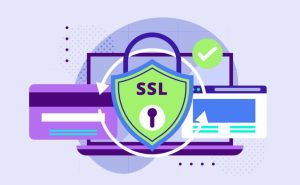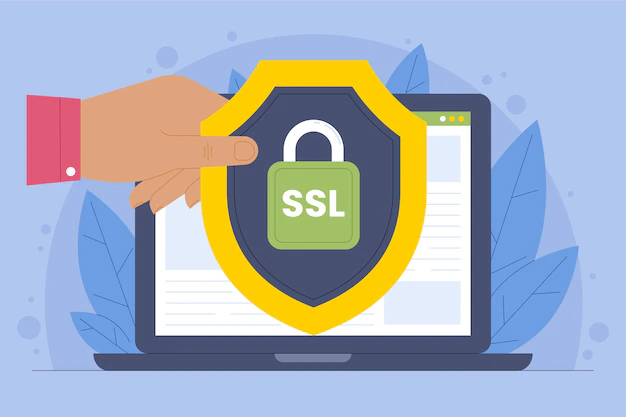Why Businesses Need SSL: Building Trust and Security in the Digital Age
In today’s digital world, where we share sensitive information online regularly, security is paramount. For businesses, establishing trust with customers and ensuring their data safety is crucial for success. That’s where SSL (Secure Sockets Layer) comes in.

What is SSL?
SSL is a cryptographic protocol that encrypts data exchanged between a website and a user’s browser. This encryption process scrambles the information, making it unreadable to anyone who intercepts it, thus protecting sensitive data like credit card numbers, passwords, and personal information.
Why Businesses Need SSL:
Here are some key reasons why businesses need SSL:
1. Increased Customer Trust and Confidence:
By displaying the familiar padlock symbol in the browser address bar and the “https://” prefix, SSL assures users that their data is protected. This fosters trust and confidence, leading to higher conversion rates and customer loyalty.
2. Enhanced Brand Reputation:
A website with SSL demonstrates a commitment to security and transparency, strengthening the brand image and reputation. This can positively impact customer perception and attract new business opportunities.
3. Improved SEO Ranking:
Search engines, like Google, prioritize websites with SSL over those without. This means websites with SSL certificates tend to rank higher in search results, increasing organic traffic and visibility.
4. Protection Against Phishing Attacks:
SSL helps prevent phishing attacks, where malicious actors impersonate legitimate websites to steal personal information. By encrypting data and verifying website identity, SSL makes it much harder for these attacks to succeed.
5. Compliance with Industry Regulations:
Several industries, such as healthcare and finance, have strict regulations requiring websites to implement SSL for data protection. By having SSL, businesses ensure compliance and avoid potential legal issues.
6. Reduced Risk of Data Breaches:
Data breaches can be devastating for businesses, leading to financial losses, reputational damage, and legal consequences. SSL minimizes the risk of data breaches by encrypting sensitive information, making it unreadable even if intercepted.
7. Enhanced Performance and Speed:
Modern SSL certificates support protocols like HTTP/2, which can improve website performance and speed. This leads to a better user experience and potentially higher conversion rates.
8. Future-Proofing Your Business:
As technology evolves and cyber threats become more sophisticated, SSL remains a cornerstone of website security. By implementing SSL today, businesses can ensure they are prepared for future challenges and maintain a secure digital presence.
How to Get Started with SSL:
Getting started with SSL is easy and affordable. Here are the basic steps:
- Choose an SSL certificate provider: Several reputable providers offer SSL certificates at different price points and features. Select one that aligns with your budget and security needs.
- Purchase an SSL certificate: Choose the appropriate certificate type based on your website’s needs and domain complexity.
- Install the SSL certificate: Most providers offer installation instructions or support to help you install the certificate on your web server.
- Verify the SSL installation: Use online tools like SSL Checker to confirm that your SSL certificate is installed correctly and functioning properly.
Investing in SSL is an essential step for businesses of all sizes. It’s a small investment that yields significant benefits, including increased trust, enhanced security, and improved SEO. By taking this crucial step, businesses can build a secure and trustworthy online presence, ultimately safeguarding their reputation and driving success in the digital age.

